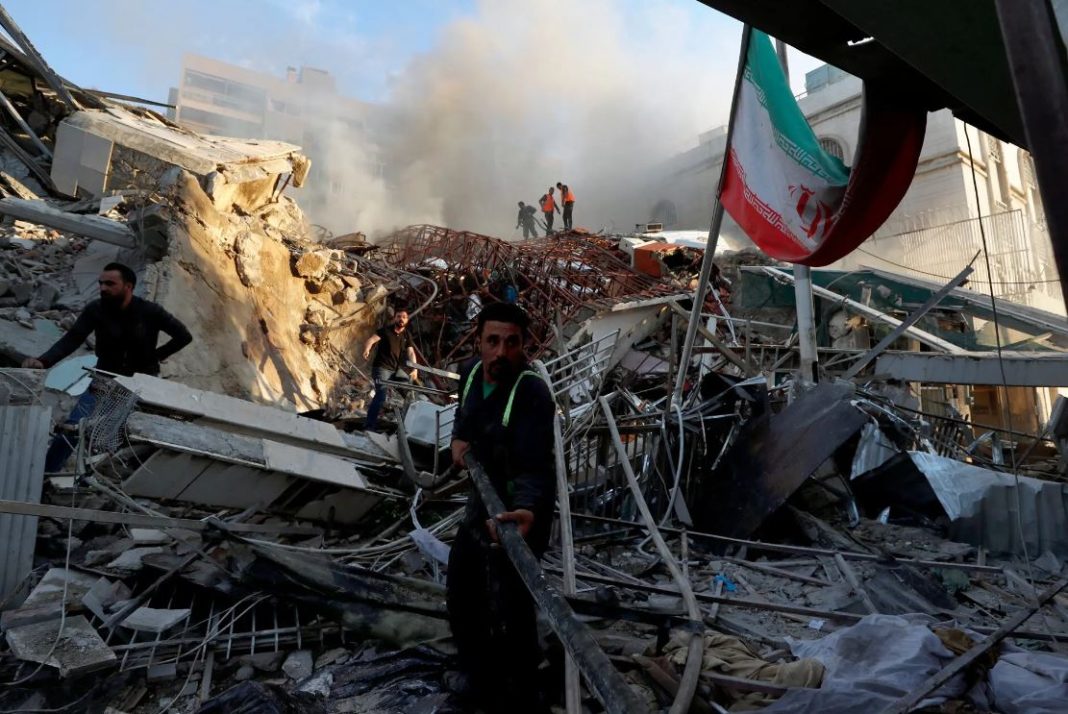Israeli officials revealed that plans for a comprehensive counterstrike against Iran were scrapped due to diplomatic pressure from the United States and other foreign allies, as well as the successful defense against an Iranian assault on Israeli soil. Speaking anonymously, three senior Israeli officials disclosed that initial discussions among Israeli leaders involved targeting multiple military sites in Iran, including locations near Tehran, in retaliation for Iran’s strike on April 13.
The proposed broad and impactful attack raised concerns about provoking a forceful Iranian response, potentially escalating tensions to the brink of a major regional conflict. However, following urging from President Biden, along with British and German foreign ministers, Israeli Prime Minister Benjamin Netanyahu opted for a more limited strike on Friday. This decision aimed to minimize the risk of escalation, at least in the short term.
Despite its scaled-down nature, Israeli officials believed that the strike showcased the breadth and sophistication of Israel’s military capabilities. Rather than deploying fighter jets into Iranian airspace, Israel opted to launch a small number of missiles from aircraft positioned several hundred miles away. Additionally, Israel utilized small attack drones to confuse Iranian air defenses, a tactic employed in previous attacks on Iranian military facilities.
The targeted strike aimed to signal Israel’s ability to hit Iranian targets without entering Iranian airspace or triggering significant retaliation. By striking an antiaircraft battery in central Iran, Israel sought to demonstrate its capacity to strike key locations without causing extensive damage. One Israeli official noted that Israel intentionally destroyed a second missile to prevent excessive damage once it became clear that the first missile had reached its target.
The decision to pursue a more limited strike followed escalating tensions initiated by Israel’s strike on an Iranian embassy complex in Damascus, Syria, on April 1. While previous similar strikes had not drawn significant Iranian retaliation, this time Iran signaled its intention to respond with a major strike on Israeli soil — its first direct attack on Israel.
In anticipation of an Iranian attack, Israel prepared both defensive and offensive operations. The defensive operation aimed to thwart the expected Iranian strike, while the offensive operation was intended as a massive counterstrike if Iran’s attack materialized. However, Iran’s assault surpassed initial estimates, involving over 100 ballistic missiles, 170 drones, and approximately 30 cruise missiles.
Despite the scale of the Iranian attack, Israel’s defense, coordinated with allies such as the United States, Britain, France, and Jordan, successfully intercepted most of the incoming missiles and drones. The limited damage on the ground reduced the immediate necessity for a swift Israeli response. Moreover, a phone call between Prime Minister Netanyahu and President Biden further reinforced the decision to refrain from immediate retaliation.
Following discussions with foreign allies, Israel ultimately carried out a targeted strike early on Friday morning. By focusing on a contained response, Israel aimed to convey a message to Iranian officials without escalating tensions further. The attack’s limited scope, coupled with Iran’s decision to downplay its impact, helped mitigate the risk of further escalation in the region.
Israel’s decision to abandon extensive counterstrike plans underscores the complex diplomatic dynamics and strategic calculations involved in managing tensions with Iran. The carefully calibrated response reflects Israel’s efforts to assert its deterrence capabilities while avoiding a wider conflict.

